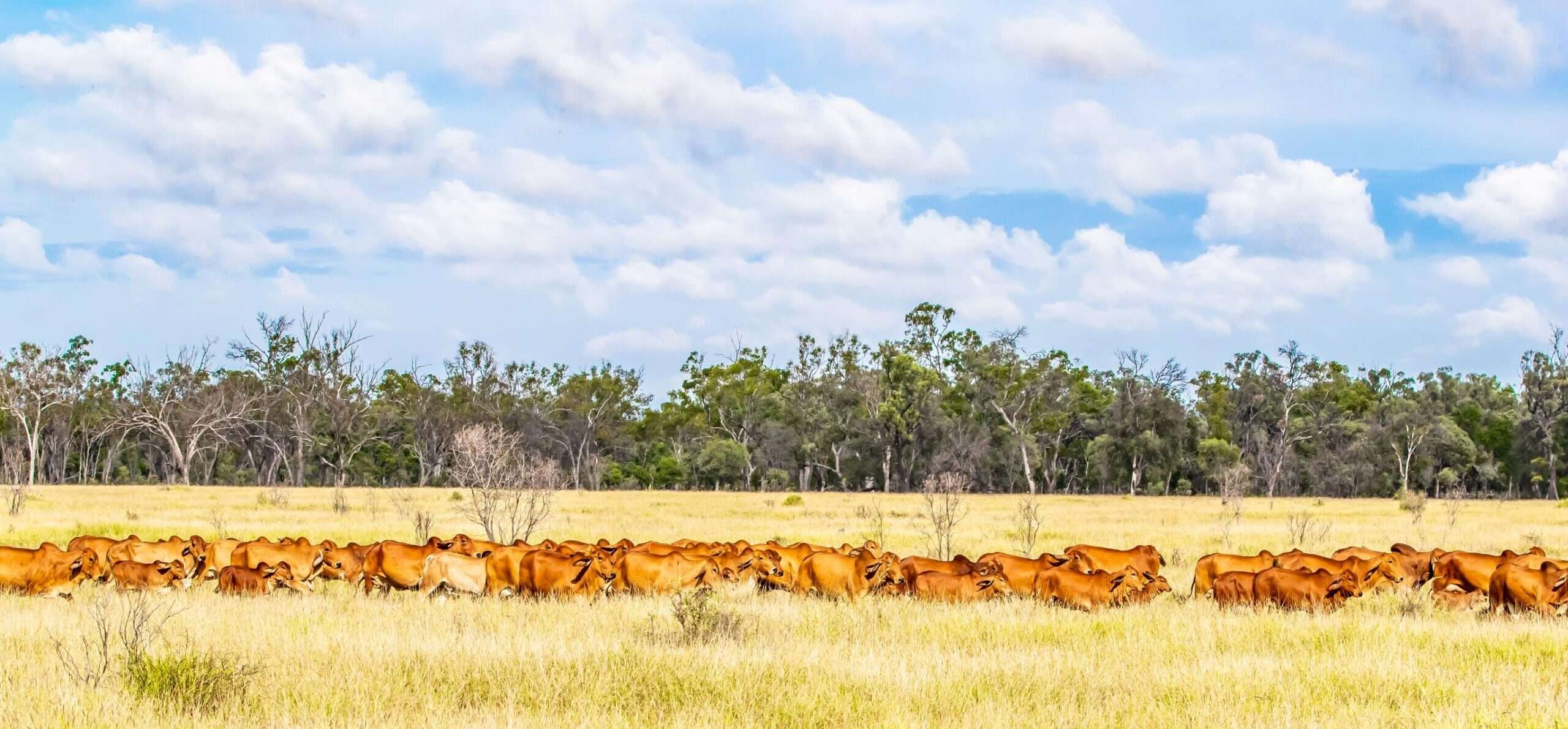FROM BEEF CRC BULLETIN WINTER 2007
BRAHMAN NEWS SEPTEMBER 2007 Issue #156
It’s a northern cattle producer’s dream: a single calf drop, timed to perfection, matched to environmental or production cycles, year after year.
But if Beef CRC researchers have anything to do with it, this revolutionary innovation for northern cattle herd management will not be a pipe-dream.
According to Beef CRC Project Leader, Professor Michael D’Occhio of The University of Queensland, calving is largely irregular and extended across Northern Australia and costs millions of dollars in lost productivity and extra labour.
“On the whole, only a small proportion of cows in northern Australia re-conceive at regular intervals or produce a calf each year,” Professor D’Occhio said.
“Add to this the extra operational costs of managing and mustering an annual calf drop spread over a number of months, and it’s a major thorn in the side of northern beef productivity and profitability.”
“What this Beef CRC research aims to do is find a genetic or management solution to help control this annual process, without early weaning and while the cow rears her calf to a normal weaning age of around six months of age,” Professor D’Occhio said.
Professor D’Occhio suggests that such a strategy would save the industry millions of dollars every year in management costs and deliver significant productivity and profitability gains.
“The option to conduct one annual muster, or even narrow the length of current musters would be a major saving in itself and with staff currently so hard to come by, this research would allow cattle producers to do more, with less,” Professor D’Occhio said.
“When completed, the research will also go a long way to helping the northern industry better guarantee and predict annual production, something that is now a bit of a gamble,” Professor D’Occhio said.
This Beef CRC project is targeting the genes that control re-conception after calving. It forms part of a larger research program focussed on improved female reproductive performance. When complete, the research results are forecast to generate a value-add of $46.5 million per annum for the Australian beef industry.
“… the research will also go a long way to helping the northern industry better guarantee and predict annual production, something that is now a bit of a gamble”
“Managing a calf drop spread across several months is a headache. In many cases two, sometimes three musters a year are needed to make sure all calves are accounted for,” Professor D’Occhio said.
“But imagine the difference that a cow with the ability to consistently fall pregnant after calving, year after year without having to early-wean her calf, would make.
It would be every cattle producer’s dream and would revolutionise the management of northern industry herds.”
After calving, cows enter a reproductive condition known as postpartum anoestrus (PPA) during which time ovulation stops. The duration of PPA varies depending on the breed and environmental factors.
“So this research is all about finding a way to promote the early resumption of ovulation after calving, particularly in tropical cattle breeds,” Professor D’Occhio said.
With a low annual weaning percentage experienced across the majority of Northern Australia, the Beef CRC project is highlighting the importance of ensuring reconception occurs within defined periods that match annual production cycles for a range of different environments.
The research aims to develop gene marker or biochemical tests to promote re-conception or, alternatively, management strategies that promote the function of favourable postpartum reproductive genes.
The result for industry would be an increase in the proportion of cows that re-conceive after calving and which do so within defined mating periods, without the need for early weaning or traditional supplementary feeding.
The research is being undertaken by scientists at The University of Queensland, CSIRO Livestock Industries, Queensland Department of Primary Industries and Fisheries, The Ohio State University (USA) and AgResearch (NZ).
Brahman cattle have been donated to the project by central Queensland cattle producers, Alf Collins Jr, of Belah Valley and Jenny McCamley, of Tartrus Brahmans.

